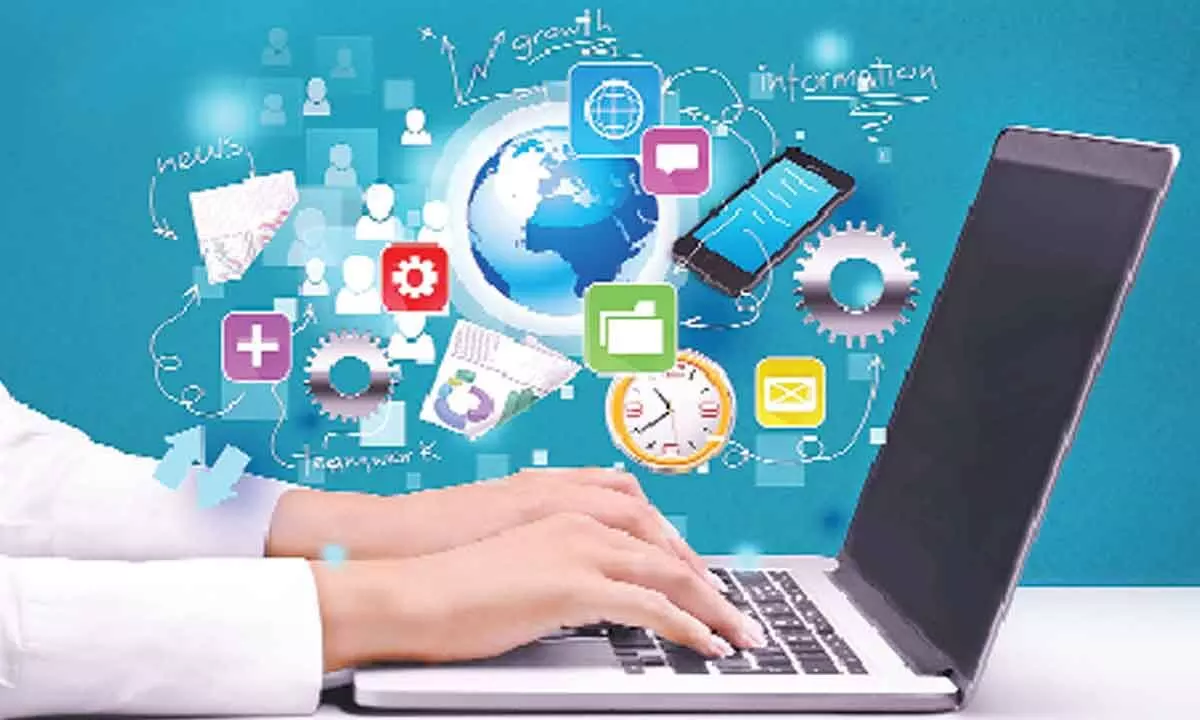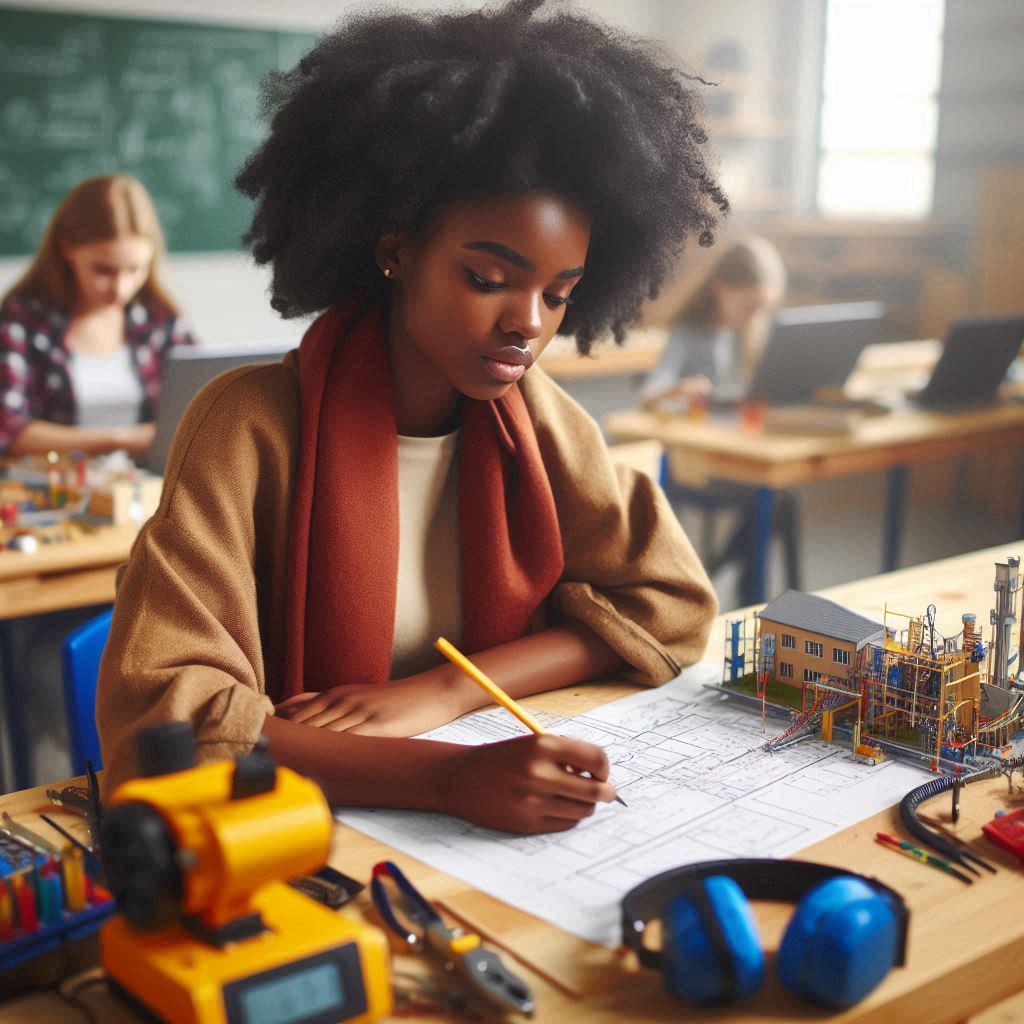The Duty of Modern Technology Education in Shaping Tomorrow's Labor force: Insights for Educators
As the landscape of work continues to develop under the influence of technological innovations, the role of technology education becomes increasingly important in preparing trainees for future jobs. Educators are charged with furnishing students not only with technological efficiency but additionally with crucial soft skills such as critical reasoning and partnership. By examining ingenious curricular strategies and promoting collaborations with market leaders, we can better recognize exactly how to properly cultivate a workforce that satisfies the needs of a digital economy. What methods can teachers utilize to bridge the void between education and industry expectations?

Value of Modern Technology Education
In a progressively electronic world, the value of technology education can not be overstated. As sectors progress and integrate advanced innovations, a well-rounded education in modern technology comes to be necessary for both individual and specialist growth. Innovation education gears up people with the skills required to navigate the intricacies of modern-day offices, fostering adaptability in an environment defined by fast change.
Additionally, technology education advertises essential reasoning and analytical skills. Insurance. By engaging with various technological tools and platforms, students enhance their capability to evaluate details, draw links, and create innovative remedies to real-world troubles. This academic focus not only prepares trainees for specific occupations yet also cultivates a mindset that is crucial for lifelong discovering
Additionally, modern technology education and learning plays a vital duty in linking the digital divide. By giving fair accessibility to technological resources and training, universities empower all pupils, despite socioeconomic standing, to join the electronic economic situation. In verdict, as we move better right into the 21st century, focusing on technology education and learning is critical for preparing a proficient labor force with the ability of growing in a progressively interconnected and technically driven global landscape.
Secret Skills for Future Workforce

On top of that, proficiency in electronic literacy is crucial; employees have to browse an array of software application tools and platforms effectively. Collaboration abilities are likewise vital, as the majority of modern offices emphasize team effort across diverse, frequently remote, settings. In addition, creativity and technology will certainly be vital in driving the advancement of brand-new options and products in a competitive market.
Recognizing information analytics and cybersecurity principles is progressively crucial, mirroring the expanding importance of data-driven decision-making and shielding sensitive information. Finally, a foundational expertise of fabricated knowledge and equipment knowing will certainly encourage future specialists to leverage these modern technologies effectively.
Educators must as a result focus on the integration of these abilities into their innovation educational program, making sure pupils are well-equipped to meet the needs of a vibrant work market. By fostering these proficiencies, we prepare students not just for their initial jobs, however, for lifelong occupations in an ever-evolving technological landscape.
Integrating Innovation in Curriculum
Incorporating innovation right into the educational program is important for modern education and learning, with 85% of teachers acknowledging its importance in boosting pupil engagement and discovering results. As modern technology remains to evolve, universities have to adapt to prepare pupils for a future where electronic proficiency is critical. This assimilation entails not only using digital devices yet additionally the incorporation of innovative resources that cultivate vital reasoning, creativity, and collaboration.
A well-structured technology curriculum must align with instructional requirements while dealing with the diverse understanding needs of pupils. This can include a blend of online systems, interactive software, and multimedia sources that published here satisfy different knowing styles. Furthermore, educators must obtain adequate training to properly execute these modern technologies, ensuring that they are outfitted to facilitate a technologically enriched understanding setting.
Additionally, incorporating technology right into the curriculum enables real-world applications, connecting the space between theoretical knowledge and functional abilities. By engaging pupils with pertinent and immersive experiences, teachers can grow a labor force that is not just technically efficient however prepared and additionally adaptable to satisfy the difficulties of tomorrow's work market. Stressing technology in education is not simply a fad; it is a need for shaping proficient future experts.
Ingenious Mentor Methods
Welcoming cutting-edge training strategies is essential for promoting a reliable and appealing discovering atmosphere in today's academic landscape. In innovation education and learning, teachers need to use techniques that not just capture students' rate of interest however also furnish them with the skills required for future careers. One reliable approach go to my site is project-based knowing, which encourages trainees to participate in real-world problems, advertising crucial thinking and partnership.
Additionally, incorporating gamification can improve motivation and retention, making intricate ideas extra enjoyable and easily accessible. Insurance. Flipped classrooms, where pupils evaluate educational material in your home and participate in hands-on tasks throughout class, additionally show helpful by making the most of classroom communication and application of understanding
Additionally, utilizing technology-enhanced discovering devices, such as simulations and online labs, allows trainees to experiment and explore in a secure atmosphere, fostering innovation. Individualized discovering experiences, tailored to specific pupil demands and discovering styles, can further improve involvement and achievement.
Eventually, by incorporating diverse and ingenious mentor techniques, educators can produce a vibrant discovering environment that prepares trainees for the obstacles of tomorrow's labor force, guaranteeing they are not just well-informed yet knowledgeable and additionally versatile.
Cooperation With Industry Allies
Working together with industry companions is essential for bridging the gap between education and the workforce. Such partnerships provide trainees with functional insights and experiences that are important for their specialist development.
Sector partnerships can take numerous kinds, consisting of teaching fellowships, mentorship programs, and guest lectures. These initiatives allow pupils to use their understanding in real-world contexts, cultivating a much deeper understanding of industry criteria and assumptions. Furthermore, these partnerships can lead to the development of customized programs that address certain labor force requirements, boosting the importance of technology education and learning.
Furthermore, industry companions can contribute sources, such as equipment and financing, that boost instructional offerings. By cultivating a society of cooperation, educators and market leaders can More Help interact to cultivate a skilled workforce that is prepared to meet the obstacles of tomorrow. Ultimately, these collaborations are important for developing a seamless shift from education and learning to work, benefiting both students and companies alike.
Conclusion
To conclude, modern technology education functions as a foundation for creating a competent labor force with the ability of navigating the intricacies of a digital economic climate. By stressing vital skills such as digital proficiency, imagination, and information analytics, teachers can enhance trainee readiness for varied career opportunities. The assimilation of cutting-edge teaching methods and partnership with sector companions better improves the learning experience, ensuring that pupils are not only equipped with knowledge but additionally prepared to satisfy the demands of an ever-evolving task market.
As the landscape of employment proceeds to progress under the impact of technological innovations, the duty of innovation education ends up being significantly vital in preparing students for future professions. As sectors advance and integrate innovative innovations, a well-rounded education in innovation comes to be essential for both individual and expert advancement.Integrating innovation into the curriculum is important for modern-day education, with 85% of instructors identifying its relevance in boosting student involvement and learning end results. In modern technology education and learning, educators should employ approaches that not just capture students' passion but likewise equip them with the abilities necessary for future occupations.In conclusion, innovation education serves as a keystone for creating a proficient labor force capable of browsing the intricacies of a digital economy.